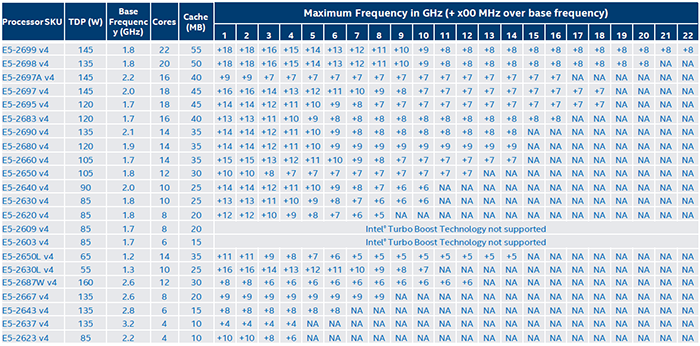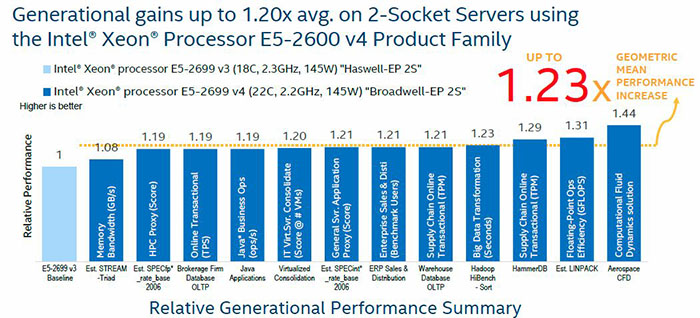New processor line-up, performance
Here's a list of over 20 E5 v4 processors with their respective base, boost and scalar turbo frequencies in one table. Closer examination shows that the TDPs, clock speed and turbo bins are very similar to what's already available on the E5 v3 Haswell-based chips. The prices, too, are near-enough identical. Broadwell-EP is therefore designed to be an easy upgrade from servers and workstations running Haswell processors.
We spoke about performance on the previous page; here it is in more detail. Intel is being a tad clever by comparing the two premier chips against each other. The Broadwell-EP version has more cores and runs memory at a higher frequency than its Haswell counterpart although it maintains the same 145W TDP. It's interesting to see that scaling is almost perfect - an average 23 per cent gain from 22 per cent more cores - though common sense dictates that there are architectural gains because memory is scaling by only 12 per cent. The exact gain is heavily dependent upon application, of course, but we can't think of any instance where Broadwell-EP will be slower.
Wrap
The Intel Broadwell-EP Xeon E5 v4 launch offers a simple upgrade for IT managers and database architects looking to refresh their server/workstation line-up. Though the pure performance gains are relatively small when compared to previous-generation Haswell, Intel is really pushing these chips as able replacements for older systems, where multiple five-year-old servers can be replaced by fewer Broadwell-EPs. Intel is keen to point out that software, often on a per-machine basis, is a key determinant of overall cost of ownership, so the overall value proposition takes a different turn if the extra per-core performance, in normal and virtualised environments, is taken into account.
The Xeon E5 v4 processors are more evolutionary than revolutionary, and make up one part of Intel's 2016 cloud strategy, with the other coming from newer SSDs launched at the same time. The company's monopoly on mainstream servers means that Xeon E5 v4 will be an automatic choice for many. There may be no more tick-tock, yet the Intel server bandwagon keeps on rolling.















